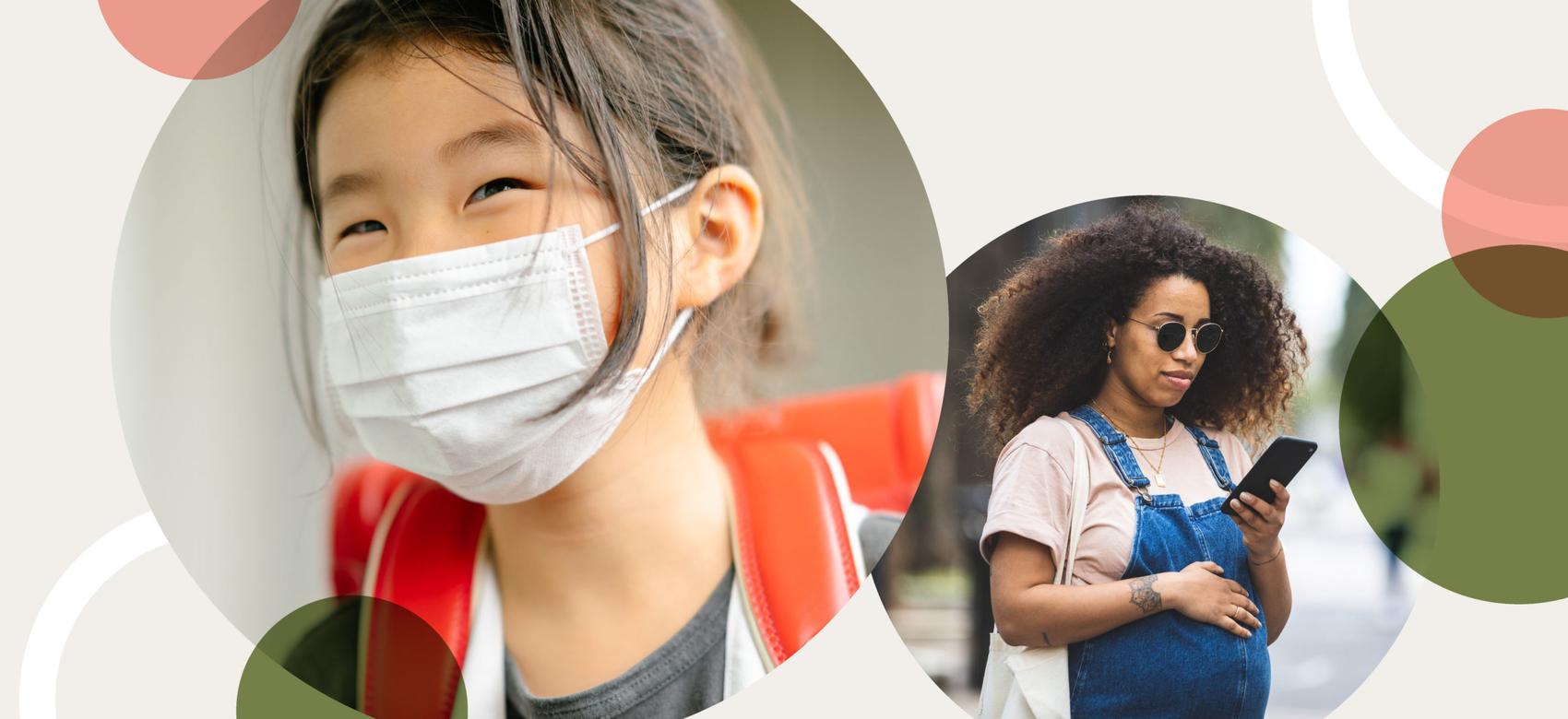COVID-19 vaccinations, pregnancy and kids
By Carolyn Ali

Why is there no vaccine for certain groups? Vaccine expert Anna Blakney explains
The University of British Columbia’s Dr. Blakney researches RNA vaccines at UBC’s Michael Smith Laboratories & School of Biomedical Engineering. Every day, she fields questions about vaccines on her TikTok channel from her 211.3 K followers.
Below, Dr. Blakney answers a few common vaccine questions, in a nutshell.
Why is there no vaccine for children?
There’s no COVID-19 vaccine for children because the initial vaccines were tested on adults. The current vaccines are approved for people over 16 or over 18, depending on the vaccine.
“When you’re first developing a vaccine, you don’t want to do it in more vulnerable populations,” explains Dr. Blakney. That’s why clinical trials are usually first conducted on healthy individuals in the general population between ages 18 and 55.
COVID-19 vaccine trials have included older age groups, up to age 80, because we see such severe disease in the elderly. Clinical trials on other groups, including pregnant women and children, are currently in the works. Vaccines could be approved for use with children once these trials are complete.
Should I get a COVID-19 vaccine if I’m pregnant or intending to get pregnant?
Moderna and Pfizer-BioNTech are both currently conducting clinical trials in pregnant women; the results of these studies haven’t yet been published.
“This is an important group because you don’t want to get COVID while you’re pregnant but you also don’t want a vaccine that has any negative side effects on your pregnancy,” Dr. Blakney points out. “As the guidelines are always changing, it’s best to talk to your GP and decide whether you’re in a risk group where you should get the vaccine. The guidelines say it’s fine to get the vaccine while you’re breastfeeding and after you’ve had your baby.”
You can find updates on the latest guidelines through the Society of Obstetricians and Gynaecologists of Canada (SOGC).
How will a COVID-19 vaccination affect my fertility?
Because these vaccines are about a year old, we only have a year’s worth of data on them. However, these aren’t the first RNA vaccines or viral vector vaccines that have been used, so we can look to data from others.
“As scientists, we draw conclusions from similar formulations. The first RNA vaccines were tested in 2013, and the viral vector vaccines in the 2000s, so we do have quite a bit a data on patients from those trials and whether there’s any downstream effects on fertility years later. There’s nothing associated with either of these types of vaccines on fertility, so there’s no reason to think that there would be for these vaccines as well.”
In addition to the Society of Obstetricians and Gynaecologists of Canada (SOGC), you can find more information on COVID-19 and pregnancy through the National Advisory Committee on Immunization’s recommendations on the use of COVID-19 vaccines.
Carolyn Ali is a writer for UBC’s Brand and Marketing. This article was published March 5, 2021.
Feel free to republish the text of this article, but please follow our guidelines for attribution and seek any necessary permissions before doing so. Please note that images are not included in this blanket licence.


